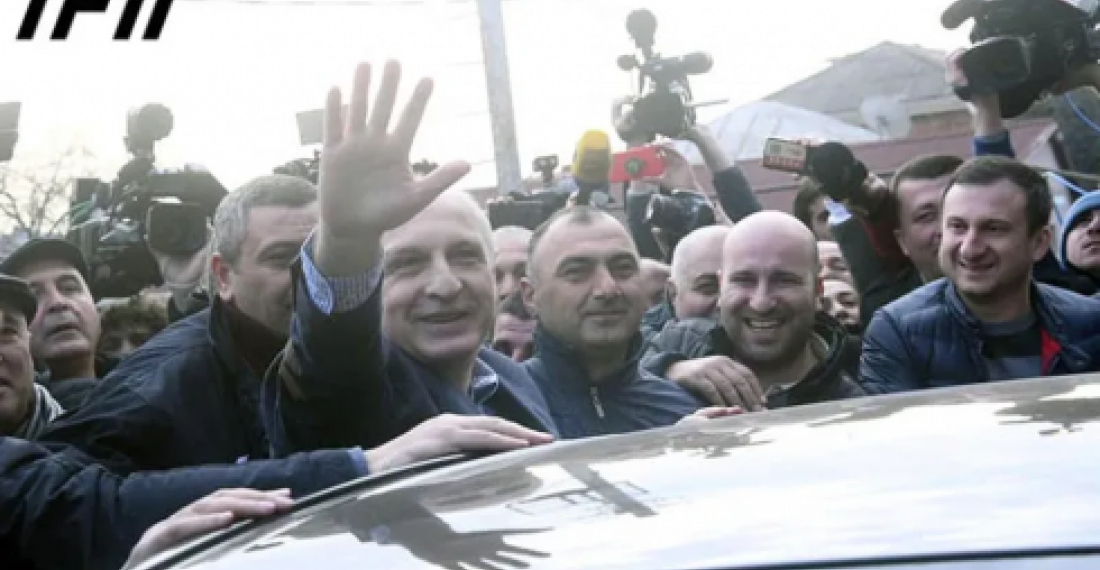Former Georgian prime minister Vano Merabishvili has declared that he is returning back to active politics minutes after he was released from prison after serving a seven year prison sentence for a variety of crimes he was found guilty of, mainly related to the time that he served as the country's Interior Minister. Merabishvili still faces charges on an issue related to the closure of the TV station Imedi.
Merabishvili has not yet said which party he will join - the old United National Movement of which he was a key leader, has during the time he has been in prison split in two. It is expected that Merabishvili will try to reconcile the two factions ahead of crucial parliamentary elections in October. A defiant Merabishvili told media and well wishers who were at the prison gate to meet him that the current government will be out of power in less than a year.
source: commonspace.eu with agencies
photo: Vano Merabishvili waves to well wishers after his release from prison on 20 February 2020 (picture courtesy of Inter Press News, Tbilisi.)







